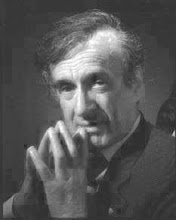In the November-December 1998 issue of Foreign Affairs, Zelikow co-authored an article entitled: Catastrophic Terrorism: Elements of a National Policy. You can download it here.

"The resulting horror and chaos would have exceeded our ability to describe it. Such an act of catastrophic terrorism would be a watershed event in American history.
It could involve loss of life and property unprecedented in peacetime and undermine America’s fundamental sense of security, as did the Soviet atomic bomb test in 1949.
Like Pearl Harbor, the event would divide our past and future into a before and after. The United States might respond with draconian measures scaling back civil liberties, allowing wider surveillance of citizens, detention of suspects and use of deadly force.
More violence could follow, either future terrorist attacks or U.S. counterattacks. Belatedly, Americans would judge their leaders negligent for not addressing terrorism more urgently."
In "Rise of the Vulcans" (Viking, 2004), James Mann reports that when Richard Haass, a senior aide to Secretary of State Colin Powell and the director of policy planning at the State Department, drafted for the administration an overview of America’s national security strategy following the September 11, 2001 attacks, Dr. Rice, the national security advisor, "ordered that the document be completely rewritten."
She thought the Bush administration needed something bolder, something that would represent a more dramatic break with the ideas of the past. Rice turned the writing over to her old colleague, University of Virginia Professor Philip Zelikow."
Written by Zelikow, this document, issued on September 17, 2002, is recognized as a significant document in the Bush administration doctrine of preemptive war.





No comments:
Post a Comment